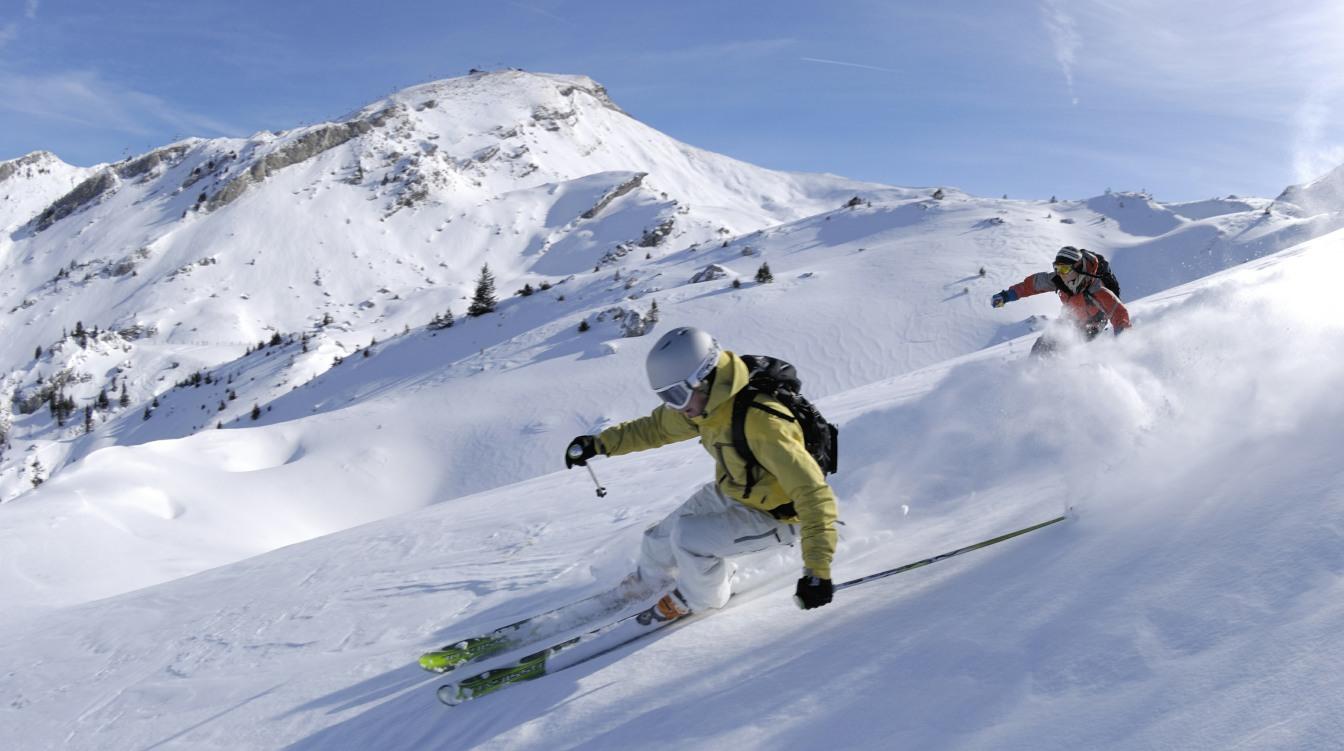Beginner Ski Lessons
In skiing, beginning with the right gear is crucial. Understanding ski gear helps newcomers feel comfortable on the slopes. Ski boots, skis, and poles are the main components. For guidance, look into the offerings of AB ski school, where you can find assistance in selecting the right equipment based on your height and skill level. Rental shops often provide expert guidance to help you make the best choice. A correct setup can significantly enhance your skiing experience.
Basic ski techniques form the foundation of your learning. Start with the basics like gliding smoothly across the snow. This skill gives you confidence and prepares you for more complicated maneuvers. Then, learn to stop effectively by using a snowplow technique. Once you have stopping under control, introduce turning. You may begin with wedge turns, which allow you to control your direction safely. Practicing both techniques will help you progress quickly.
Safety is a top priority in skiing, especially for beginners. Wearing a helmet and other protective gear is vital for security on the slopes. Accidents can happen, and protection reduces injury risk. It’s essential to be mindful of your surroundings. Learning to navigate the slopes safely, including understanding trail signs and respecting other skiers, enhances both your experience and safety. Familiarizing yourself with the rules of the ski resort is important to maintain a secure environment.
Intermediate Ski Lessons
Once you’ve mastered the basics, focus on enhancing ski techniques. Here, you’ll work on parallel turns, a skill that provides better control and style. These turns enable skiers to maintain speed while managing their direction more efficiently. It’s crucial to practice this skill consistently; it greatly improves your overall skiing performance. As your confidence grows, you can start increasing speed and control over your movements, leading to a more exhilarating experience on the slopes.
In the intermediate phase, introduction to ski poles becomes essential. Proper use of ski poles helps with balance and rhythm. Learning when to plant your poles during turns will improve your timing. Correct pole placement also aids in maintaining stability as you ski downhill. Developing these skills takes practice, but they are vital in moving toward more advanced techniques. You will notice significant changes in your skiing ability as you incorporate poles into your style.
Navigating different terrains should become a focus at this level. Skiing on steeper slopes requires advanced techniques and confidence. You’ll learn how to manage increased speeds and develop a greater sense of control. Understanding and handling different snow conditions is also vital; variable snow can greatly affect your skiing experience. Practicing on powder, ice, and slush will prepare you for almost any skiing situation. You can enhance your adaptability and skills by tackling diverse conditions.
Advanced Ski Lessons
The advanced stage is where you refine your skills, focusing on advanced ski techniques. Mastering carving techniques allows for smoother and faster turns. This skill will enable you to take on steeper runs and more challenging terrains confidently. You’ll also focus on techniques for moguls and bumps, requiring quick reflexes and adaptability. Learning to navigate these obstacles efficiently will add excitement to your skiing.
Another important area to explore is off-piste and backcountry skiing. Here, safety and preparation are vital, as the challenges are more pronounced. You must understand how to evaluate snow conditions and avalanche risks. Gathering the right equipment for backcountry skiing can be complex but is crucial for safety. Familiarize yourself with essential gear such as avalanche beacons, shovels, and probes. Preparation can be the difference between a thrilling adventure and a hazardous situation.
In the realm of competitive skiing, developing racing techniques is essential. You’ll learn how to execute turns more effectively for speed and precision. Additionally, exploring freestyle skiing introduces creative elements into your skiing repertoire. Basic tricks such as jumps and spins can enhance your skill level dramatically. Participation in competitions may also provide valuable feedback and challenges. This stage transforms skiing into an art form, where expression meets athleticism.
Customized and Specialized Training
As skiers progress, they often consider whether to pursue private lessons or group lessons. Benefits of private coaching include tailored instruction that meets individual needs. One-on-one attention allows for more rapid improvement and confidence building. In contrast, group dynamics foster camaraderie and allow learners to thrive in a communal environment. The interaction in groups provides motivation and encouragement, creating a fun atmosphere for shared learning experiences.
Specialty ski camps also play a crucial role in skill development. These camps offer focused training sessions that target specific skills, pushing athletes to improve faster. Participants can experience a range of programs, from racing to freestyle skiing. Advanced skill development workouts will not only enhance techniques but also build endurance and coordination. Attending such camps can significantly impact a skier's proficiency and passion for the sport.
With every lesson and session, skiing transforms from a simple sport into a lifelong passion. Whether you’re starting out or aim to finesse your skills, there’s a path for everyone. The journey through skiing is filled with excitement, challenges, and growth. There’s always a new technique to learn or terrain to conquer, making the progression from beginner to advanced levels incredibly rewarding.
